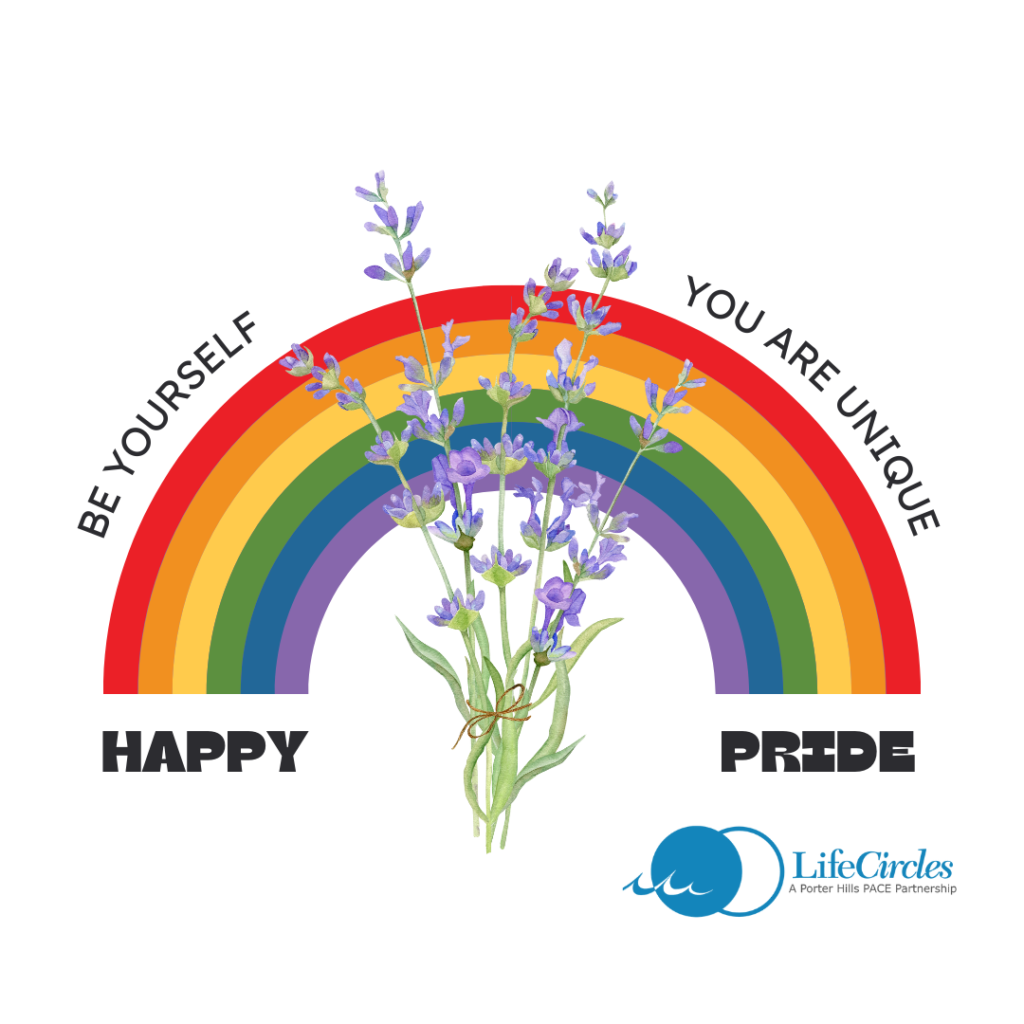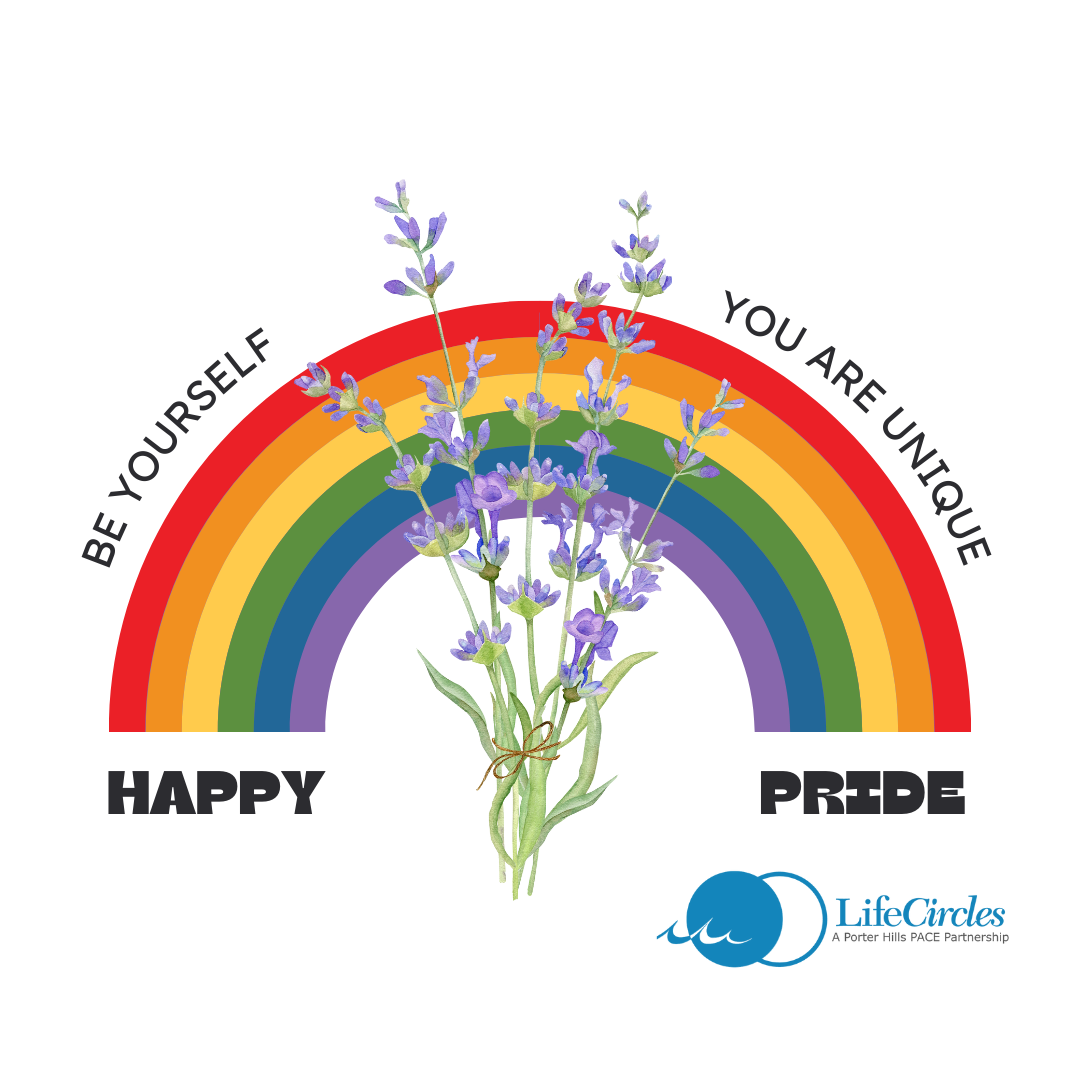Do you know why Pride month is celebrated in June?
Today marks the 53rd anniversary of the Stonewall Rebellion, which is widely regarded as a pivotal moment in the work for equal rights for LGBTQ+ individuals. New York City Police officers were known to harass and arrest people who met up at gay establishments. Discriminatory laws existed and were enforced – one in particular authorized the arrest of anyone not wearing at least three articles of “gender appropriate” clothing.
After several nights of harassment and arrests in June of 1969, patrons of the Stonewall bar protested their friends being forced into a police vehicle. The protestors gained in number, and the rebellion lasted several days to raise awareness for the discrimination and harassment that LGBTQ individuals were experiencing. Some call these events riots, many who participated in the events prefer to call it a rebellion or protest. Though the event began somewhat spontaneously, it galvanized more organized work for equal rights. Stonewall in the context of the Civil Rights era contributed to several groups forming to work for causes important to LGBTQ+ persons.
The first LGBTQ pride marches took place on the one-year anniversary of the Stonewall Rebellion. LGBTQ+ persons and their allies sought to show people that being their whole self was something to be proud of. As many institutions had taught people that being queer or gay was something to be ashamed of, LGBTQ+ people sought to show the world that they were nothing to be ashamed of. This continued work and these events have led to what we now know as Pride Month, which is celebrated in June, in part to honor the Stonewall Rebellion.

Issues facing LGBTQ+ older adults:
Many of the people involved in the Stonewall Rebellion are in their 70s now. Older adults are not a monolith, there are multiple generations, and many different lived experiences. Some older people who are LGBTQ+ may not have publicly identified as gay or lesbian. Some may have lived most of their lives out, loud and proud.
There are still many prejudices, biases and crimes that target LGBTQ+ persons. An older person may worry that they will not be able to access the same services as their peers. LGBTQ+ seniors are less likely to have had children. As they age and may need more assistance day to day, they may fear turning to agencies or other services to come into their home to help them. Who will the agency send to their private home? Will they need to “come out” again and again if they send multiple staff to the home? If the individual has a partner or spouse, will it be easier to tell these outsiders that they are just roommates or close friends? If this person decides to move to a senior care facility, how will they be treated by their peers, by the staff etc? When someone’s partner or spouse passes, will the individual be accepted at grief support groups to process their grief, or will the experience be complicated by deciding when to share with others about who they loved? Up until recently, the Social Security Administration did not offer survivors benefits to long standing LGBTQ+ couples. Often, this left individuals with fewer resources than their heterosexual peers.
Supporting all seniors in their desire to age in place.
At LifeCircles we stand for inclusivity. We exist to help older adults live their best life in their home. We believe that it is best for older adults, and their communities to age at home, instead of in a facility. Each individual we work with is just that, a unique individual. We tailor our care & support to each person, and work with persons of all backgrounds, faiths, sexual orientations, etc. We want everyone we work with to know that LifeCircles is a safe place, full of people who care for each unique individual. Our team works each day to learn, grow, and provide culturally competent care. Our program and our LifeCircles team is a place where people are embraced for being their full, authentic selves. Please know that LifeCircles is a safe and welcoming place to call on.
Resources to explore:
LGBTQ+ Seniors who may feel isolated – SAGE Connect Friendly Caller Program is an easy way to chat with another person for a weekly phone call to reduce isolation.
Want to know more about Social Security benefits for same sex couples?
Consider learning more about issues facing LGBTQ+ persons by visiting The National Resource Center on LGBTQ+ Aging
Are you a senior care professional looking for resources on better serving LGBTQ+ older adults? Check out SageCare .
Last Updated on June 29, 2022
